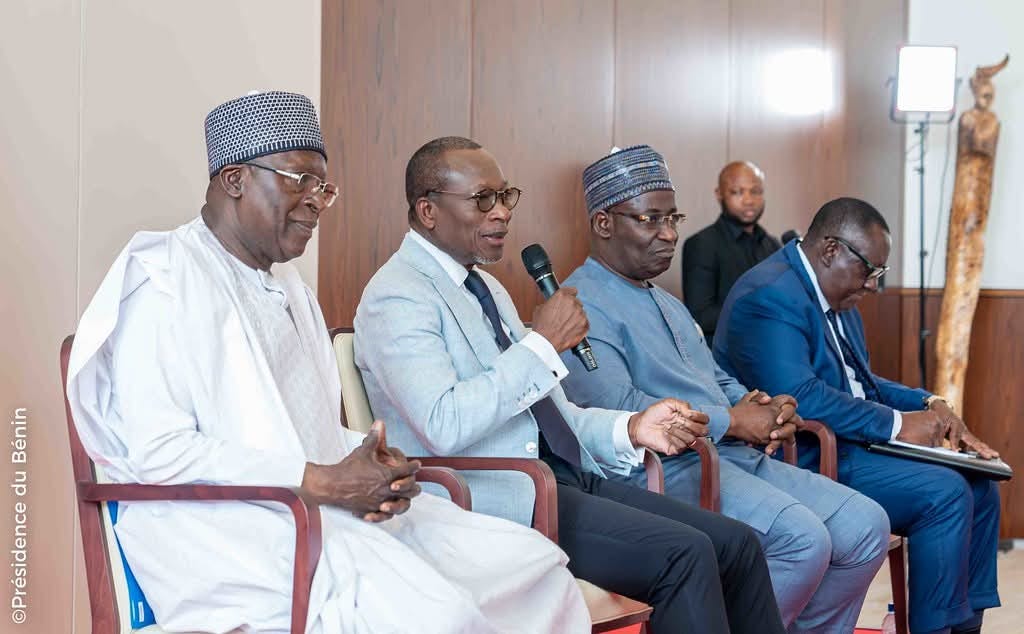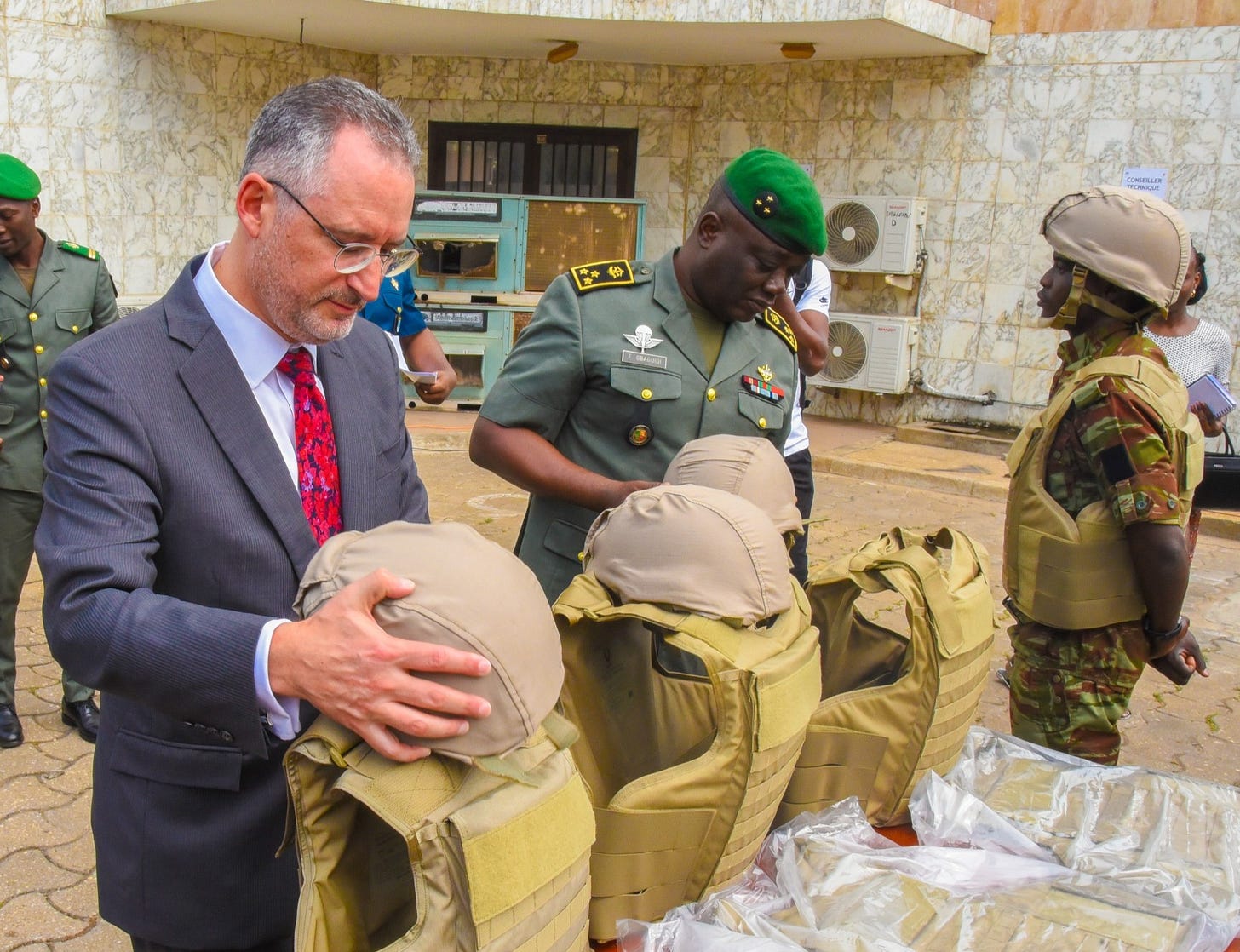Benin's President Promises Action on Fulani Concerns
Will It Be Enough to Address the Root Causes of Violent Extremism in the Country's North?
President Talon Meets With The Fulani Community
On 27 December, Beninese President Patrice Talon met with members of the country’s Fulani community - also known as the Peul - a predominantly Muslim ethnic group known for their pastoralist lifestyle.
Fulani communities, historically excluded or marginalised by governments across West Africa, are dispersed throughout the region, with a sizeable presence in Benin’s north.
During the meeting, broadcast live on national television, Fulani representatives alerted Talon about the frequent arrests their community experiences.
They reported these arrests are often carried out based on inaccurate information or false accusations, typically prompted by disputes over land, politics, women, and other grievances.
Moreover, detentions are mostly carried out at night, with little-to-no consideration for their customs or religious authorities, Talon was told.
Fulani leaders also drew attention to the impact of farmer-pastoralist conflicts on their livelihoods, warning that herders and their livestock are often attacked, even in areas allotted by the government for them to graze their animals.
Fulani Communities and The Spread of Violent Extremism in West Africa
Reports of state persecution, intercommunal violence, and conflict between farmers and herders echo patterns of behaviour that have played a major role in the central Sahel’s escalating security crisis, which continues to rage just across Benin’s northern border.
Indeed, Islamist extremist groups such as Jama’at Nusrat al-Islam wal-Muslimin (JNIM) and Islamic State Sahel Province (IS-SP) have exploited these deep-rooted grievances to recruit heavily from lower castes of the Fulani in states like Mali and Burkina Faso.
This has prompted state security forces, government-aligned militias, and other actors to systematically attack Fulani communities, often with lethal affect, pushing them further away from the state toward militant groups.
Consequently, a widely held belief that the Fulani have played a major role in increasing levels of extremist violence has emerged in West Africa.
These cycles of violence continue to fuel the spread of JNIM and IS-SP through the central Sahel and into fresh pastures. In recent years, militants have moved southward into the Gulf of Guinea states, with Benin being the most impacted.
Like many of its neighbours such as Ghana, Togo, and Côte d'Ivoire, Benin has a distinct north-south divide. In all these littoral states, northern communities face issues with political, social, and economic exclusion. Fulani communities in northern Benin experience these challenges particularly acutely.
In the country’s north, violent extremists have firmly entrenched themselves in the W-Arly-Pendjari Park Complex, a vast nature reserve that straddles Benin, Burkina Faso, and Niger. The park’s physical and human terrain has proven highly conducive for JNIM, IS-SP, and other violent actors.
Aside from its dense greenery, the park complex and its environs are also home to long-standing conflicts over water and land between farmers and herders, as well as populations reliant on illicit networks.
These permissive conditions have allowed terrorists to implant themselves in the area and use it as a launchpad to encroach deeper into Benin.
Benin’s Lopsided Response
The Beninese government has channelled significant attention and resources to combat this threat militarily. By 2025, over 60 percent of the armed forces are anticipated to be stationed in northern Benin.
Additionally, the country has made significant investments in its military and sought assistance from external partners to bolster its capabilities.
However, despite this significant undertaking, insecurity, illicit activity, and violence have endured. The massive influx of security personnel, alongside the near-total closure of the park complex, has led the government’s response to be perceived by some as heavy-handed.
Furthermore, there has been criticism that the accompanying economic and social initiatives have been limited and slow to address the cascading issues.
Talon Promises a New Approach – Will It Adequately Address Systemic Issue?
At the meeting on 27 December, President Talon maintained that Benin’s fight against terrorism cannot be used “to abuse the community and individuals of the Peul community.” He also warned that stigma can be more dangerous than violent extremism itself.
The Beninese leader has pledged to implement a multi-pronged approach to address some of the Fulani’s major grievances.
This response will focus on better educating security personnel, addressing conflict over land between farmers and pastoralists by guaranteeing more land rights for Fulani herders, strengthening judicial transparency, and promoting better communication between local authorities and security forces.
Talon’s public dialogue with the Fulani community shows a willingness to address some of the root causes of rising terrorist activity in the country’s north, the president must ensure this new approach is implemented decisively and comprehensively.
Indeed, while many view the Fulani’s role in regional insecurity as “the combined product of history and Fulani identity”, it is structural factors that push members of this community and other ethnic groups toward violent extremism.
Anti-Fulani hostility is a significant issue in Benin and other neighbouring states, a sentiment that is often felt as strongly at the very upper echelons of society as it is at the grassroots level.
A failure to address this hostility will benefit the jihadist groups that governments are working so urgently to counter.



